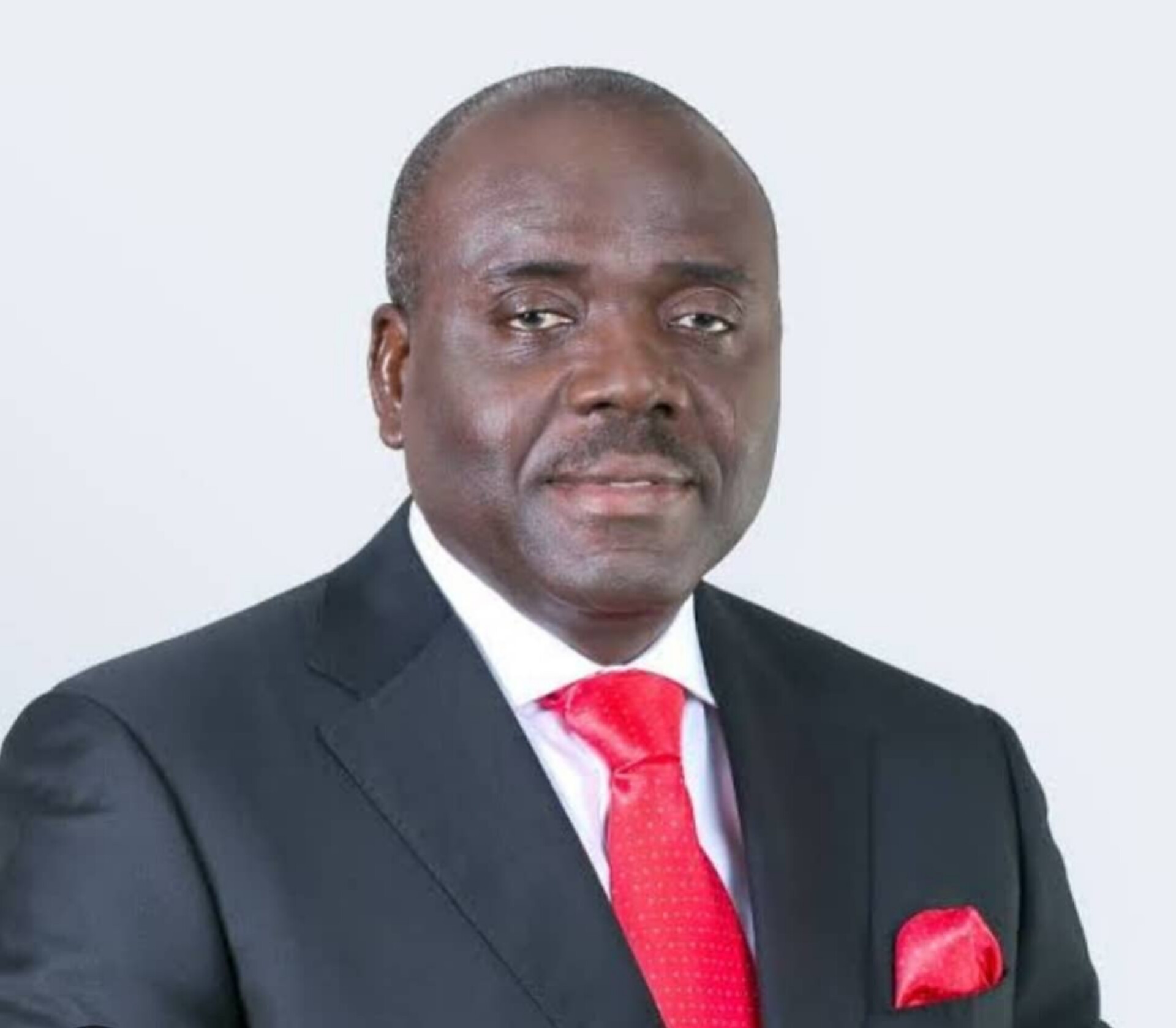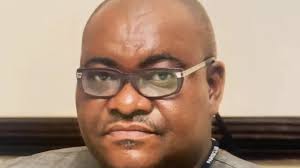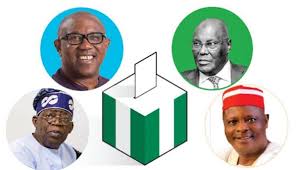By Tunde Olusunle
Not too many people who had the kind of experience which Abdulrasaq Isa Kutepa had in 2011, were able to reinvent themselves and spring back on their feet, thereafter. A successful banker, high-flying oil magnate, serial entrepreneur and noteworthy philanthropist, Kutepa thought to avail his home state of Kogi some of the experiences he had garnered on his pluri-faceted routes in life. Soundbites by those who speak about Kogi State profile the geo-polity as a pristine goldmine awaiting exploration.
 The monstrous Dangote Obajana Cement Project in Lokoja local government area, (LGA), on the Lokoja-Kabba road has been in operation for over a decade for instance. It is, however, just a tip of the iceberg of the infinite potentials and possibilities in the state. An additional cement enterprise has berthed in Iluhagba in Ijumu LGA of Kogi State, floated by Mangal Industries. Crude oil has been struck at the *Oda River- 1 well* in Ibaji LGA of the state, which, since 2022, qualified Kogi State for listing as an oil producing state. It is the first such state in the northern section of Nigeria.
The monstrous Dangote Obajana Cement Project in Lokoja local government area, (LGA), on the Lokoja-Kabba road has been in operation for over a decade for instance. It is, however, just a tip of the iceberg of the infinite potentials and possibilities in the state. An additional cement enterprise has berthed in Iluhagba in Ijumu LGA of Kogi State, floated by Mangal Industries. Crude oil has been struck at the *Oda River- 1 well* in Ibaji LGA of the state, which, since 2022, qualified Kogi State for listing as an oil producing state. It is the first such state in the northern section of Nigeria.
Beyond its endowments in solid minerals and petroleum, Kogi State is blessed with swathes and stretches of fertile lands across the state capable of sustaining a plethora of crop species. The state is home to scenic touristic sites and iconic monuments. Lokoja the capital of Kogi State for instance, is the confluence of Nigeria’s two largest rivers, the Niger and the Benue. The conjoining of both rivers is a sight to behold from atop *Mount Patti* in the Kogi State capital. Colonial era Governor-General of Nigeria, Frederick Lugard, superintended over Nigeria from the flatlands and highlands of Lokoja.

This was before the amalgamation of the northern and southern components of contemporary Nigeria into what many have described as a forced matrimony, in 1914. Lugard’s erstwhile workspace, today hosts the seat of administration in Lokoja. Added to all of these is the super-abundance of highly, multi-dimensionally educated, skilled and certified human capital from Kogi State. They are in such an overflow of numbers that most have opted for addresses elsewhere, within and outside Nigeria. I have always bragged for example, that with almost a dozen most deserving Senior Advocates of Nigeria, (SAN) from the Okun sphere in Kogi State, some whole states elsewhere and geopolitical zones may not be as endowed.
Kutepa had with him a diligently articulated masterplan to assist Kogi State in leveraging this bouquet of endowments, capabilities and competencies for its upward socioeconomic ascent. The document was safely in his pouch before he stepped into the political fray in the run-up to the primary of the off-cycle gubernatorial election of 2011. He pitched his tent in his bid for the governorship ticket with the Peoples’ Democratic Party, (PDP), the party to beat those days. The primary election which was to produce a successor to the incumbent governor, Ibrahim Idris at the time, attracted some of Kogi’s best and brightest, including Kutepa.
Apart from his credentials as a bona-fide homeboy, Kutepa had in previous times, selflessly dispensed to his constituents in parts of the state, flickers of his own “corporate social responsibility,” in his private capacity. While some politicians flaunted platoons of urchins they had recruited as deviants and thugs, Kutepa had already made a huge statement about the projected educational slant of his agenda, if he scaled the primary. He had built, equipped and donated classroom blocks, laboratories and similar facilities in parts of the state to schools, freewill, to underscore his specific preference for education as key to the future.
The Kogi State PDP governorship primary was held twice that year. It was fiscally, physically, even emotionally draining for the contestants and their supporters alike. Whereas some of the aspirants who participated in the earlier primary held in January 2011 withdrew from the September 2011 sequel, Kutepa ably participated in both. He diligently acquitted himself as the proverbial macho man in Yoruba lore who dared to sleep bare-chested in the open in the freezing temperatures of numbing harmattan. This underscored his deep-seated grit and ruggedness. He emerged in a photo-finish second position on both occasions, a most commendable showing for a self-propelled aspirant with neither a godfather or state backing in any form. He was pitched against the “anointed” candidate of the incumbent governor, Ibrahim Idris. Idris confessed to those who took him up on the subject that he was doomed to produce his kinsman as successor or risk being ostracised by his kinsmen, maybe neutralised. That is the variety of politics played in our clime.
Kutepa wasted no time brooding over the outcome of his attempt at the Kogi governorship. Not for him the lounging around the corridors of State House, Aso Villa, Abuja prospecting appeasement with a “candy bar,” in the name of some nebulous compensatory political appointment. He dusted his boots, made an about turn and headed for his primordial habitat in the skyscraping boardrooms of Victoria Island and Ikoyi, both highbrow districts in Lagos, at the very heart of the nation’s economy. Back in 1998, he had co-founded Waltersmith Petroman Oil Limited, an indigenous upstream oil and gas company, dedicated to the exploration and production of oil and gas resources. The company operates the *Ibigwe* field in “Oil Mining Lease 16,” Imo State, which was acquired through a competitive bid in 2004.
Waltersmith Petroman successfully began commercial exports from Ibigwe field in 2008, growing peak production to 7000 barrels per day, (bpd). The company’s 5000bpd modular refinery was commissioned by former President Muhammadu Buhari in 2020 and contributes almost 300 million litres of refined products annually. With the additional award of the *Assa* marginal field to Waltersmith in 2021, the modular refinery is being expanded to have a refining capacity of 40,000bpd. Waltersmith is also diversifying into power generation and has procured a 300 megawatts power generation license. In collaboration with the United Nations Industrial Development Organisation, (UNIDO), Kutepa’s organisation is developing an industrial and innovation park. Such has been the fairytale of the ascendancy of Kutepa’s vision, over one decade after the Kogi political experience.
The development of Kogi State also remains very dear to his heart as demonstrated by his unfailing generosity over time. Despite not clinching the governor ticket in 2011, Kutepa remained very supportive of the administration of Idris Wada, the veteran aviator who eventually got the ticket. For his carriage and comportment through the motions culminating in Wada’s emergence, Kutepa was assigned the prerogative of nominating a running mate to Wada. He never dithered before forwarding the details of Yomi Awoniyi, son of the historic personage, Sunday Bolorunduro Awoniyi, elder statesman and retired “super permanent secretary” of post-independence Nigeria. Kutepa has a relationship dating back to the late 1970s and early 1980s with the younger Awoniyi who read architecture, while he, Kutepa, studied sociology at the Ahmadu Bello University, (ABU), Zaria. Yomi Awoniyi indeed served as director-general of Kutepa’s campaign, ahead of the primary.
His *Isa Kutepa Foundation* has worked over the years with the United Nations Children and Educational Fund, (UNICEF) in the provision of potable water in rural communities across the state, taking up part responsibility of what is ordinarily the schedule of the government. He is also keen to endow a professorial chair in geology at the Federal University Lokoja, (FUL), devolving from his subsisting endeavours as a big player in the petroleum sector. Kutepa said this much when he received the management of the institution led by its Vice Chancellor, Professor Yemi Akinwumi, in his Lagos office, last year. Kutepa also committed to build structures at the permanent site of the medical school of the university, to accelerate the evolution of the new faculty.
Honours have kept pouring in recent months for the cultivated, urbane, personable Kutepa, ever generous with his smile and lather-laced laughter. He has for example been officially recognised for his enormous contributions to the socioeconomic life of the nation. Former President Buhari was sufficiently gracious to adorn him with the prized national honour of *Officer of the Order of the Federal Republic,* (OFR), before Buhari’s own disengagement last May. This was spontaneously followed by his investiture with the revered Nupe title of *Jikada Raya Kasar Nupe* by the *Etsu Nupe,* Dr Yahaya Abubakar, CFR, September 16, 2023, at a colourful ceremony in Bida, the heartland of the Nupe nation. Back home in Lokoja, his longstanding honour as *Majindadi* remains evergreen in communal consciousness. Kutepa equally has a long string of professional affiliations with home-based and foreign bodies.
The career transmutation of Abdulrasaq Isa Kutepa over the decades is the stuff of motivational modules. He will be 63 next February and earned an honours degree in sociology from ABU in 1982. He equally attended the Lee Kuan Yew School of Policy at the National University of Singapore. He was at the Citibank Global Training School, New York, in his tireless cycle of self-redevelopment. He cut his professional dentition at the former “Bank of Credit and Commerce International,” (BCCI), which later became “African International Bank,” (AIB), post-National Youth Service Corps, (NYSC), in 1984. He equally had stints at the erstwhile “Chartered Bank Nigeria Ltd,” now Stanbic/IBTC, and “Safetrust Savings and Loans Ltd.” He transited from the banking hall to the boardroom in 1998. Kutepa has served variously on the boards of publicly owned and private concerns over the years, and continues to make himself available for service in the public good.
A pan-Nigerian to the core, Kutepa grew up in the sociocultural melting pot of Lokoja where diverse tongues and different traditions converge. He is married to Kate Isa from Nigeria’s South East who shares her husband’s entrepreneurial DNA. Mrs Isa’s specialty is in scientific products and equipment, and the union is blessed with two charming children: Amina Ezinneka and Zaq Chidiebere. In a society still dominated in parts by mundane and parochial considerations like ethnicity and religion even in the 21st century, not many people from Kutepa’s parts will accede to their children bearing names considered “alien” to their geo-religious cleavages. Not for Kutepa, a conscientious patriot who thinks humanity and Nigeria first and foremost, before other thoughts.
Tunde Olusunle, PhD, poet, journalist, scholar and author is a Fellow of the Association of Nigerian Authors, (FANA)




